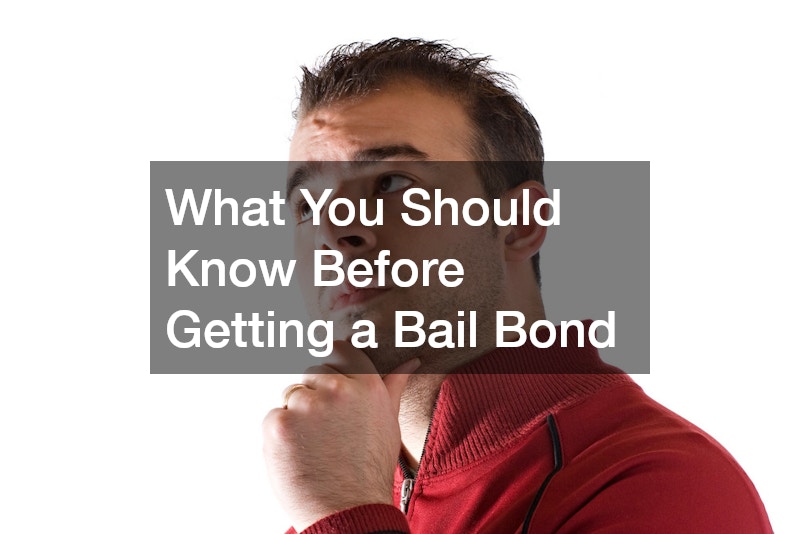When a loved one is arrested, the immediate concern is often to secure their release from jail. This is where the concept of bail bonds comes into play. A bail bond is an agreement that allows the accused to be released from custody, under the promise of appearing in court for all scheduled hearings. Local bail bonds are typically issued by a bail bondsman or bail company that acts as a surety, guaranteeing the amount set by the court. Understanding the basics of how bail bonds work is crucial before making any decisions.
Bail amounts are generally predetermined, depending on the severity of the crime. In some cases, the amount can be exceptionally high, where the accused cannot afford to pay in full. Here, a bail bondsman steps in to pay a percentage of the total bail amount, usually securing it with a form of collateral like property or other assets. By choosing to work with local bail bonds services, you make it easier to manage the logistics involved. With this arrangement, the accused must comply with all legal requirements and appear for all set court dates.
Trust is a significant factor to consider when working with a bail bondsman. Most local bail bonds companies boast proven reliability, efficiently managing the paperwork and other legal aspects. It is essential to work with a bail bonds service that is recognized by your community for its accountability and ethical practices. Additionally, reading reviews and seeking recommendations helps ensure the bail bondsman you select is competent and has a solid reputation. It gives peace of mind knowing your bond is being handled by professionals.
The Financial Implications of Bail Bonds

Financial considerations are an essential aspect of securing a bail bond. A typical local bail bonds service requires the client to pay a non-refundable premium, usually about 10% of the total bail amount. While this may sound like a considerable upfront expense, it can be a pragmatic choice, considering the entire bail charge. Being fully aware of the financial commitments involved helps prepare better for what to expect during the bail process.
A prime advantage of opting for local bail bonds is the potential for lowering hidden expenses and fees often associated with out-of-town companies. Local services are more familiar with the state laws governing the bail process, allowing for more accurate and fair service charges. Besides the upfront premium, ensure to inquire about any additional costs that might arise, such as travel fees, court fees, or administrative charges. Transparent communication is key to avoiding unexpected financial burdens down the road.
Another critical facet of the financial aspect is collateral. A bail bonds company typically requires collateral to guarantee its investment. This might include valuable items like real estate, vehicles, or other significant assets. It’s vital to understand the terms and conditions concerning collateral agreements, so you’re fully informed of the financial obligation. Familiarity with the process aids in gaining assurance that your assets are protected, should any legal dispute arise during your engagement with the bail bonds service.
It’s also important to recognise that bail bond costs are non-refundable, meaning that even if the charges are dropped or the accused is found not guilty, the premium paid to the bail bondsman is not returned. This underscores the need to budget carefully and understand the total financial exposure before committing to an immediate bail bond. Additionally, some companies may offer flexible payment plans or reduced premiums under certain circumstances, so discussing these options in advance can help ease the financial strain. Being proactive about these considerations prevents surprises and supports a smoother, more manageable bail process.
Legal and Ethical Considerations in Bail Bonds
Understanding the legal ramifications of obtaining a bail bond is vital prior to moving forward. Legal compliance is paramount, as breaching the terms could result in severe consequences, including revocation of the bail bond and subsequent detention of the accused. It highlights the need to conscientiously adhere to all stipulations set by the court. Moreover, bail bonds must be handled responsibly and ethically, aligning with the jurisdictions governing them. Only engage with local bail bonds firms that comply with state regulations, ensuring a seamless and legally compliant process.
Ethically, it’s important to act in the best interest of justice, ensuring that the accused fulfills their obligations. If the defendant does not appear in court, the bail bondsman may employ bounty hunters to locate and return the individual to law enforcement. This illustrates the seriousness of keeping every court appearance to avoid any unjust occurrences. Proper adherence to ethical practices by all parties concerned ensures the integrity of the bail system remains intact. Confirming your bail bonds service provider prioritizes these principles provides significant reassurance during what can be a tumultuous period.
The bail bonds industry operates under stringent regulatory oversight to prevent misuse and exploitation. Local communities value transparent and ethical practices by bail bond services to safeguard their residents’ interests. It’s prudent to consider testimonials from former clients, reflecting the company’s alignment with ethical and legal standards. Remaining informed and communicating openly with your selected service strengthens the legal process’s reliability, maintaining not only the rights of the accused but also fostering trust throughout the judicial framework.



